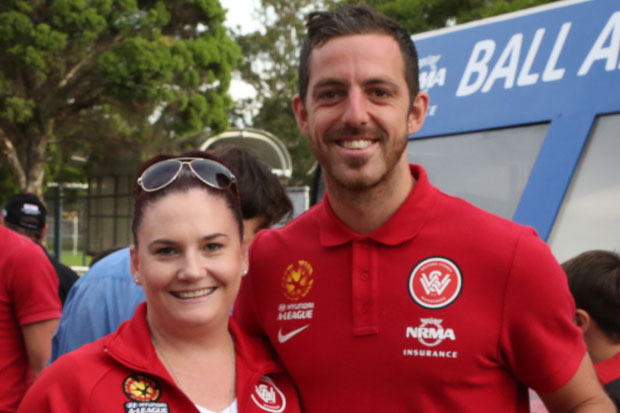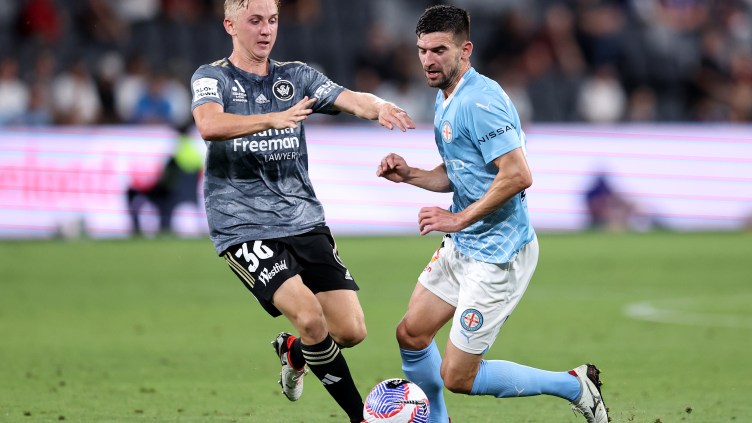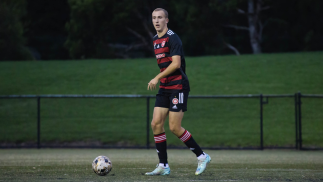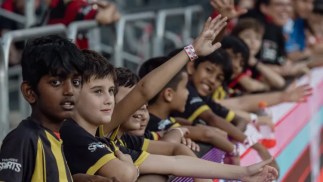The Wanderers are built on a foundation that is more than simply what happens on the field.
Community engagement seems to be a catch-phrase that every sporting body in Australia wants to hang their hat on but at Western Sydney Wanderers the statement is much more than just words.
Upon his appointment in 2012, Executive Chairman Lyall Gorman put community engagement at the core of the club, saying that it will be “the strength of this new club and how it can set new benchmarks in football.”
Two years on and it is clear that the vision Gorman outlined is well on the way to becoming a reality.
This season has seen Western Sydney Wanderers players make over 300 player visits and more than 3000 children have participated across around 230 football clinics.
In conjunction with NSW Minister for Citizenship and Communities Victor Dominello and the PCYC, the club launched the Western Sydney Youth Football Project.
The initiative serves to provide young people from multicultural communities the free use of football pitches for 12 months and with nearly 250 youths involved, the club will continue the project and hopes to see it self-sufficient within two years.
The club-s involvement, however, stretches far beyond what happens with the ball.
Their ‘Two Halves- program, which involves 45 minutes in the classroom and 45 minutes on the pitch, serves to highlight the parallels of football pathways with life pathways.
It dovetails well with the Wanderers- literacy program in which players read books that are then distributed throughout schools in the region while the club-s support of White Lion helps disadvantaged youth reintegrate into the community and look for career options.
The Club-s focus is on helping youth in the region and their anti-bullying campaign that will be ramped up next season only reinforces that.
This season has also seen both Brendon Santalab and Dean Heffernan promote organ donation during Donate Life Week with Heffernan even signing up himself while shot-stopper Ante Covic got behind White Ribbon Day as an ambassador against domestic violence.
When Western Sydney Wanderers was born two years ago Tim Thorne was, along with Gorman, John Tsatsimas and Tony Popovic, one of the first people on board.
In his role as Community Football Pathway Development Manager it is up to Thorne to ensure that what the club is doing in the community goes above and beyond what is expected.
“The big difference for us is that our programs are not just tokenistic,” he said.
“We-re working with University of Western Sydney to go and assess every single program we conduct because if it-s not actually making a difference then we shouldn-t be doing it.”
Thorne recounted a recent experience where, following an offer from the club, the family of a deceased Western Sydney Wanderers member asked the club to attend their funeral.
He and assistant Josh Hunter did attend and said the feedback from taking the time to go along had been extremely positive.
“I think that-s the core difference in what we-re doing – we-re out there on the ground in the community, what we-re doing is real, it-s not paperwork, it-s just not a media moment,” he said.
Judging by the conviction in his voice there is little doubt Thorne genuinely understands just how crucial the off-field work the club performs actually is.
Not just for a one-off good news story or a program that can be looked back on later, but for the long-term future of the club.
“The big thing for me is that within everything we-re doing, it-s important from a football club to understand that everything is integrated,” he said.
“How our team performs – not whether they win or lose, but how they perform – is important; if they go out there and give their best, give everything they-ve got, we know that we-ll get the support.
“If our players go out there and represent us well, that-s really important.
“The programs we do inside the community as a whole that go past football, it-s important that they-re real, they-re not tokenistic and that they really make a difference.”
Despite the progress that has been made in just two years Thorne stresses that it is just the base of the foundations in the Wanderers five-year community engagement plan.
“For me, the direction of where this goes is that it remains absolutely at the core of the club,” he said.
“Because of that the club will be successful and will be continued to be supported whether it wins or it loses.
“And that-s a truly big club for me – one where the fans turn up no matter what because we stand for more than just football.”




